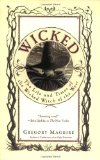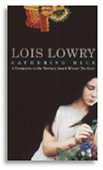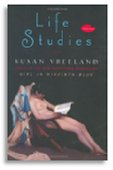I want to thank all of you for your submissions to this week’s carnival. Before we peruse the selections, I want to, as we say here in the South, put a bug in your ear about something. The next Literature Carnival will take place on April 8, but the one after it falls one day before William Shakespeare’s birthday. For the April 22 edition of the Carnival, please submit your Shakespeare-themed posts, and let me know if submissions received well before then should be saved for the Shakespeare edition.
I always look forward to GrrlScientist’s submissions, especially her LabLit reviews. Read her review of Intuition by Allegra Goodman.
Ron Schuler probably didn’t know this about me when he submitted Prisoner Without Fingerprints — The Mystery of Thomas Malory, but I’m a huge King Arthur nut. The story of Sir Thomas Malory is almost as interesting as that of his famous legendary hero, and it is something I thoroughly enjoyed reading at Ron Schuler’s Parlour Tricks.
Margaret Atwood generated quite a buzz with her LongPen, which enables her to “meet and sign books for her fans all over the world from her own home.” It also generated some snark from “General Kang” at The Skwib.
One of the most interesting trends in blogging, perhaps (or perhaps not) originating with NaNoWriMo, is serial blogging — the publication of short stories or novels in serial format on a blog. I think this is one of the wonderful things about blogging — who needs to cater to an agent or a big publishing house when you can share your writing in your blog and reach your readers immediately? And what better way for agents and publishing houses to scout for talent? OUPblog submits part one of their serial blogging piece “Copycat.” (Yeah, I know, it isn’t exactly what I was talking about, as this piece was previously published, but you get the idea).
“The horror…” Heart of Darkness. Koranteng Ofosu-Amaah takes a look at the novel and the shadow it casts over Congo/African-related literature in his excellent post.
Ever get that “so many books, so little time” feeling? What do you do about it? Tanya Abramovitch at The Library Girl considers the options.
OK, folks, see you in two weeks with the ninth edition. Don’t forget to make your submissions for inclusion.






